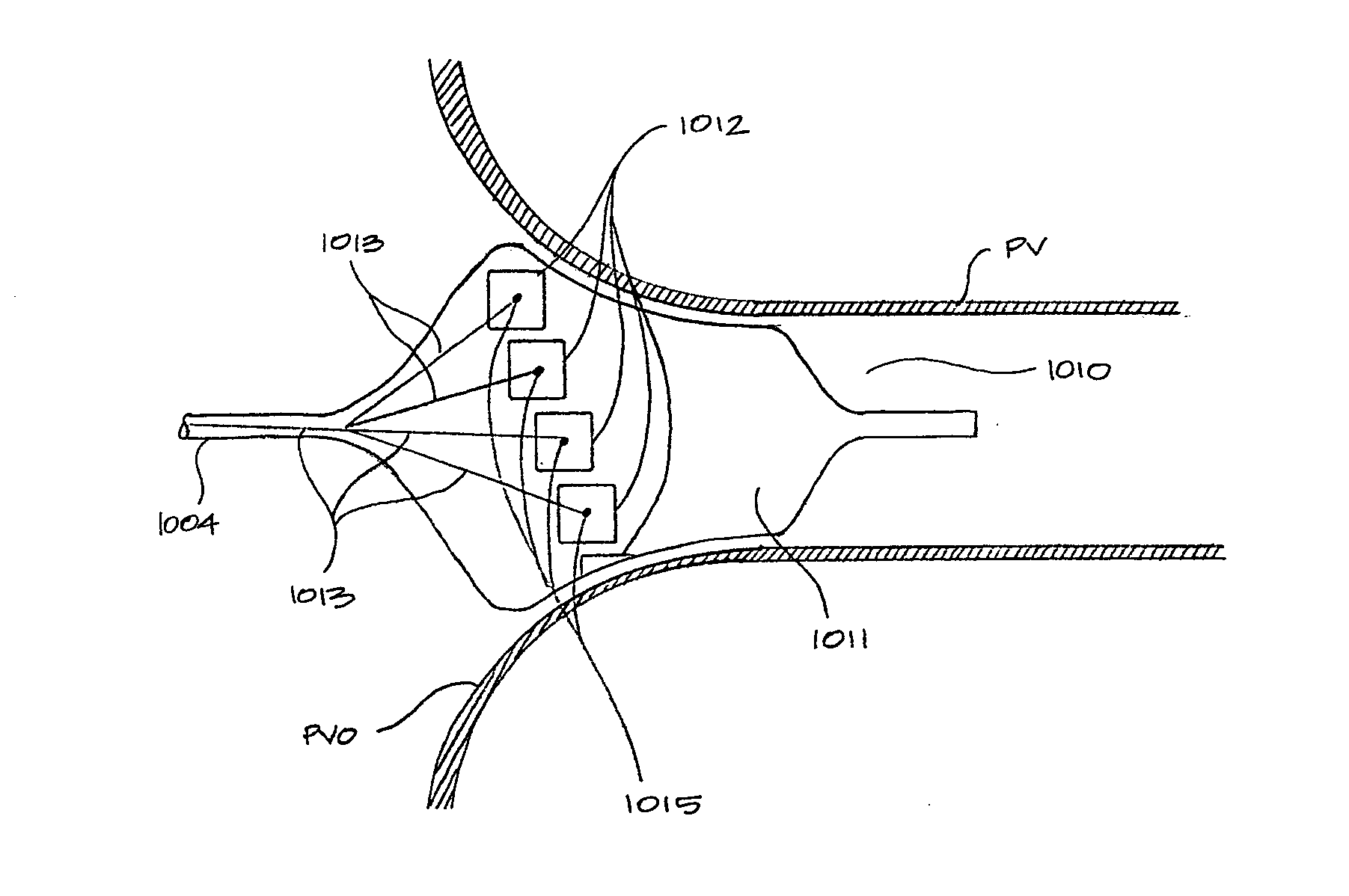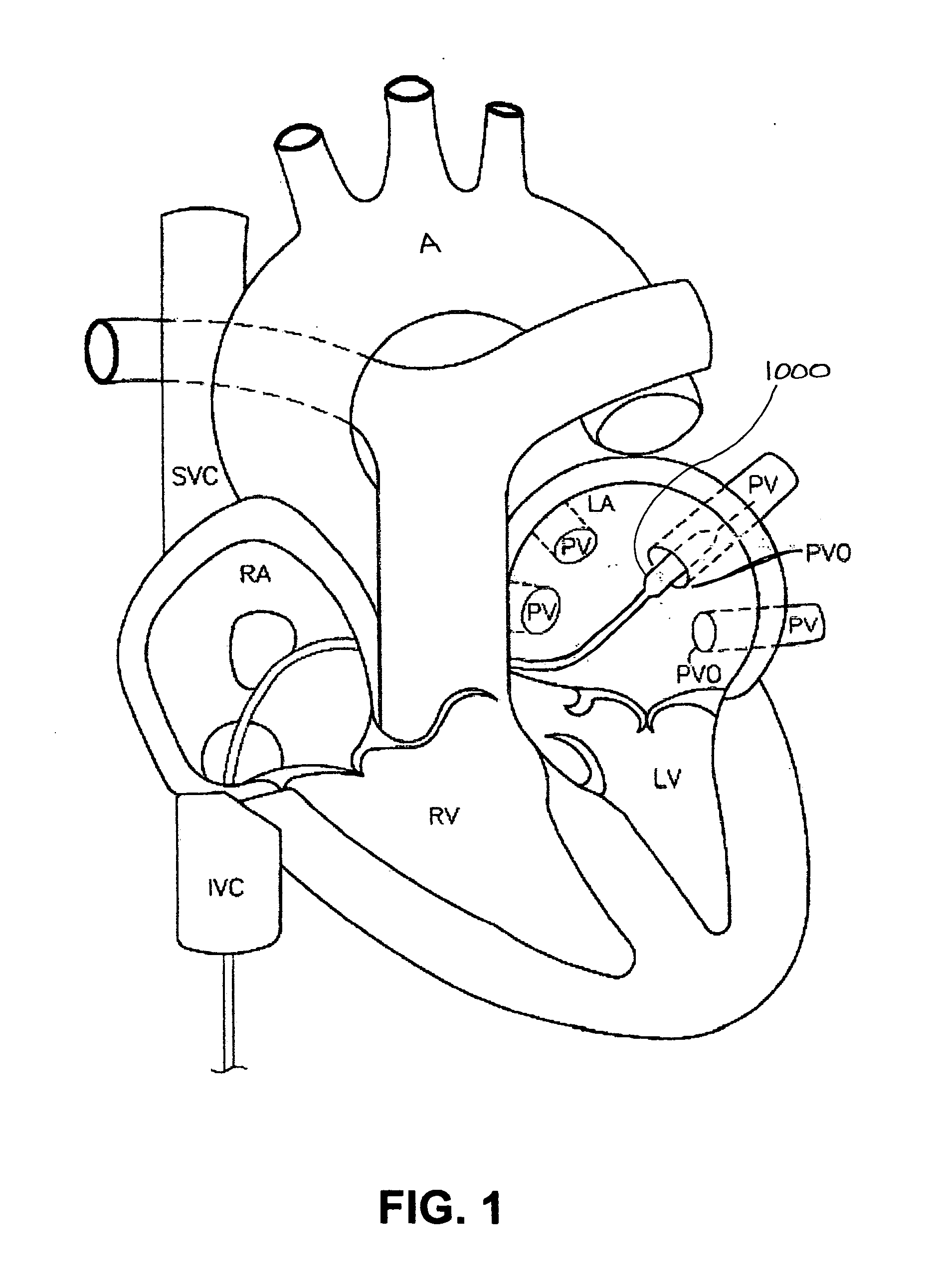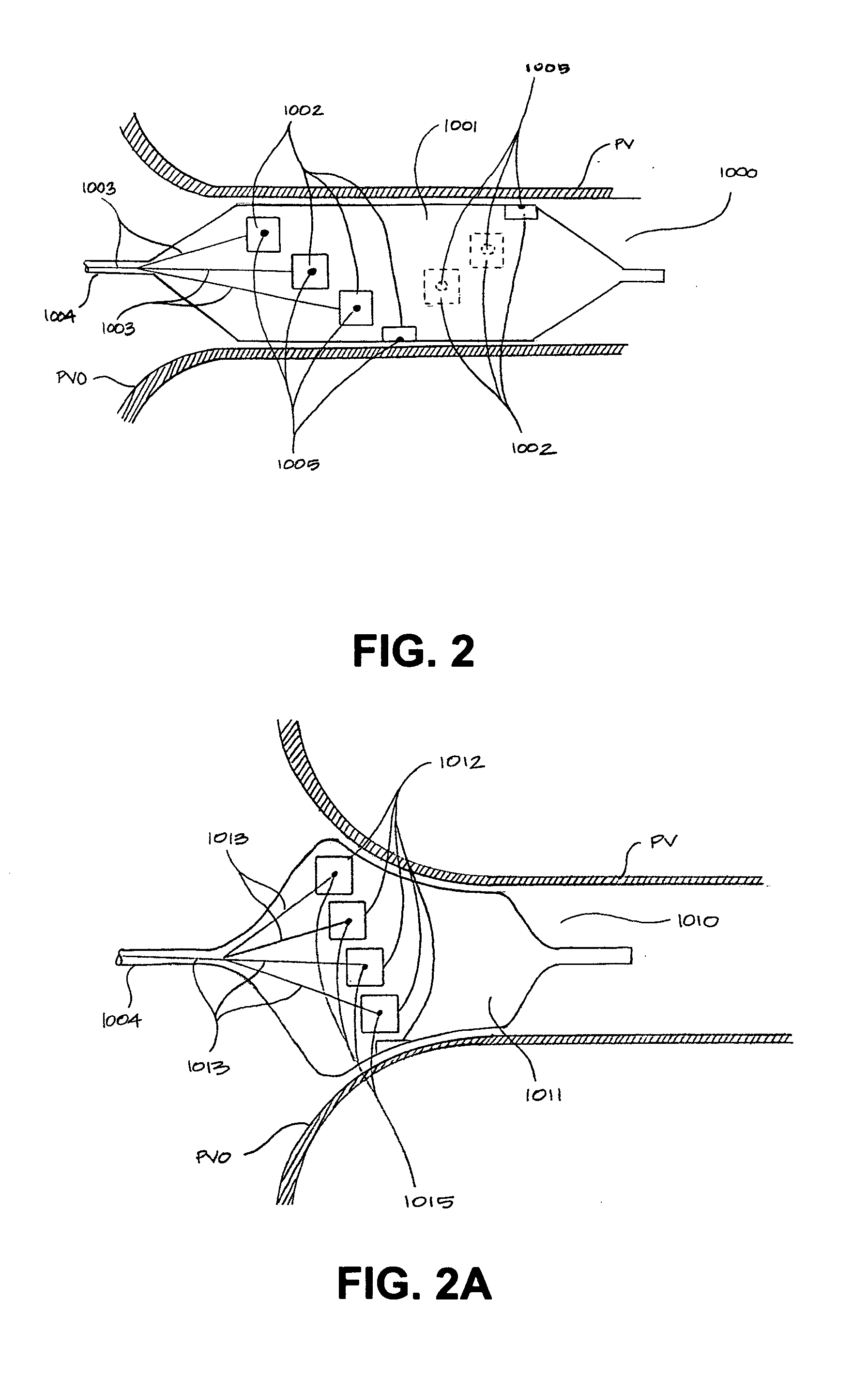Devices and methods for denervation of the nerves surrounding the pulmonary veins for treatment of atrial fibrillation
- Summary
- Abstract
- Description
- Claims
- Application Information
AI Technical Summary
Benefits of technology
Problems solved by technology
Method used
Image
Examples
Embodiment Construction
[0064]Referring to FIG. 1, the human heart is a complex hollow structure having numerous discrete sub-structures. The four chambers of the heart are the right atrium (“RA”), the right ventricle (“RV”), the left atrium (“LA”), and the left ventricle (“LV”), Several major blood vessels flow to or from the heart. The inferior and superior vena cava (“IVC” and “SVC” respectively) return blood to the heart. The aorta (“A”) supplies blood to the major portion of the body from the heart. The pulmonary veins (“PV”) provide blood from the lungs to the heart. Inside the LA are the four openings where blood from the lungs enters the LA from the PV through the pulmonary venous ostia (“PVO”). Shown is an exemplary embodiment of a balloon catheter device 1000 for use in the present invention. A venous approach to the heart through the IVC is shown. However, any of the large variety of interventional access methods used for heart procedures may be used. For example, arterial access may be used, en...
PUM
 Login to View More
Login to View More Abstract
Description
Claims
Application Information
 Login to View More
Login to View More - R&D
- Intellectual Property
- Life Sciences
- Materials
- Tech Scout
- Unparalleled Data Quality
- Higher Quality Content
- 60% Fewer Hallucinations
Browse by: Latest US Patents, China's latest patents, Technical Efficacy Thesaurus, Application Domain, Technology Topic, Popular Technical Reports.
© 2025 PatSnap. All rights reserved.Legal|Privacy policy|Modern Slavery Act Transparency Statement|Sitemap|About US| Contact US: help@patsnap.com



